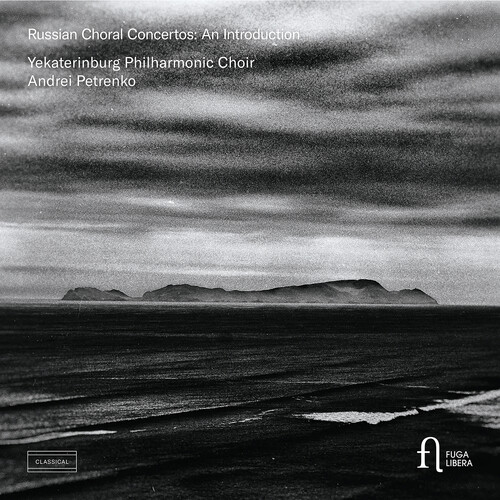Show results for
Deals
- 4K Ultra HD Sale
- Action Sale
- Alternative Rock Sale
- Anime sale
- Award Winners Sale
- Bear Family Sale
- Blu ray Sale
- Blues on Sale
- British Sale
- Classical Music Sale
- Comedy Music Sale
- Comedy Sale
- Country Sale
- Criterion Sale
- Electronic Music sale
- Fantasy Film and TV
- Folk Music Sale
- Hard Rock and Metal Sale
- Horror Sci fi Sale
- Jazz Sale
- Kids and Family Music sale
- Kids and Family Sale
- Metal Sale
- Music Video Sale
- Musicals on Sale
- Mystery Sale
- Naxos Label Sale
- Olive Films on Sale
- Page to Screen Sale
- Paramount Sale
- Pop and Power Pop
- Rap and Hip Hop Sale
- Reggae Sale
- Rock and Pop Sale
- Rock Legends
- Soul Music Sale
- TV Sale
- TV Sale
- Vinyl on Sale
- War Films and Westerns on Sale

Russian Choral Concertos - An Introduction
- Format: CD
- Release Date: 5/24/2024

Russian Choral Concertos - An Introduction
- Format: CD
- Release Date: 5/24/2024
- Label: Fuga Libera Label
- UPC: 5400439008281
- Item #: 2638078X
- Genre: Classical
- Release Date: 5/24/2024
CD
Price: $19.94

Get it between
Sat. Apr 26 - Mon. May 12
Deliver to
Product Notes
The polyphonic choral concerto performed a cappella first appeared in Russian music at the beginning of the 18th century. Sacred in origin, it began as a multimovement setting of liturgical texts. Although it later became more secular in character, it nonetheless retained an elevated nature thanks to it's use of Christian imagery. Most of the composers who worked in this genre were choirmasters and conductors, and inherited the traditions of the oldest professional choirs in Russia: the Moscow Synodal Choir and the Saint Petersburg Court Chapel.
The Golden Age of the Russian choral concerto came with the works of Dmitry Bortnyansky and Stepan Degtyarev during the reign of Catherine the Great. The genre took a new turn at the end of the 19th and the beginning of the 20th centuries, thanks to the efforts of Pavel Chesnokov, Sergei Rachmaninoff and Alexander Arkhangelsky. Composers during the later 20th century had greater freedom to choose their poetic texts and to modify the form of the genre: they could make use of secular themes, as did Georgy Sviridov in Pushkin's Garland, or follow the spiritual and philosophical path of the genre, as we see in Valery Gavrilin's Chimes.
